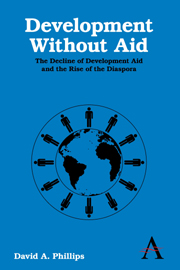Book contents
- Frontmatter
- Contents
- List of Acronyms
- Acknowledgments
- 1 Introduction: Motivation and Perspective
- 2 What Is Foreign Aid, Who Does It, Why and How Much Is There?
- 3 How Far Has Development Aid Been Effective?
- 4 Why Has Development Aid Done So Little?
- 5 Changing the Dynamics of Development
- 6 “New Aid”: New Ways to Promote and Finance Development?
- 7 Another Pathway Out of Poverty?
- 8 Exit Strategy – Replacing Foreign Assistance
- 9 Postscript
- Notes
- Index
4 - Why Has Development Aid Done So Little?
Published online by Cambridge University Press: 05 July 2013
- Frontmatter
- Contents
- List of Acronyms
- Acknowledgments
- 1 Introduction: Motivation and Perspective
- 2 What Is Foreign Aid, Who Does It, Why and How Much Is There?
- 3 How Far Has Development Aid Been Effective?
- 4 Why Has Development Aid Done So Little?
- 5 Changing the Dynamics of Development
- 6 “New Aid”: New Ways to Promote and Finance Development?
- 7 Another Pathway Out of Poverty?
- 8 Exit Strategy – Replacing Foreign Assistance
- 9 Postscript
- Notes
- Index
Summary
It is a fallacy to think that overall poverty can be ended by a comprehensive package of “things” like malaria medicines and clean water. The complex poverty of low-income societies will slowly give way to prosperity the same way it happened in rich countries, through the gradual homegrown rise of political and economic freedom. [Democracy] cannot be imposed from the top by the IMF, World Bank, or U.S. Army…
William Easterly responding to Steve Radelet, Council of Foreign Relations online debate, 1 December 2006The prime determinants of material progress are people's economic aptitudes, their social institutions and political arrangements.
Peter T. Bauer (1976)A recent study of 6,000 World Bank projects evaluated since the early 1980s found that: “even after accounting for a wide range of micro and macro variables, much of the variation in project performance remains unexplained.” The study was able to account for only about 12 percent of the variation in measured project outcomes, which largely reflected as-yet-unmeasured factors at both the country and project levels. The inability to successfully explain the variation in project outcomes is closely related to the inability to explain outcomes per se. This chapter considers the reasons for this inability.
- Type
- Chapter
- Information
- Development without AidThe Decline of Development Aid and the Rise of the Diaspora, pp. 65 - 102Publisher: Anthem PressPrint publication year: 2013



